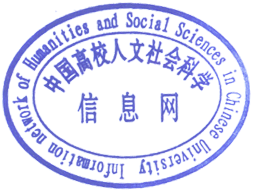中国事件英语话语的叙事特点及其目的语读者关照的汉译策略——以On China及其翻译为例
作者:周小琴
关 键 词 :中国事件 英语话语 叙事特征 目的语读者关照的翻译策略 《论中国》学科分类:
摘要/Abstract
中国事件越来越受世界关注。英语话语常以异域的视角叙述中国事件,多采用模糊化表达、解释性表达和类比性描述等关照英语读者的叙事策略。将叙述中国事件的英语话语“回译”成汉语可让中国更好地了解西方世界对中国事件的态度,翻译时可采用总体保留异域叙事视角、模糊话语具体化、浓缩或删减冗余话语、直译类比性描述、近似复现古文引语等策略,以充分关照汉语读者的阅读期待和文化情感。On China的译作《论中国》尽管忠实于原文,语言流畅,但因在“回译”中国事件时未能充分关注汉语读者的阅读期待而稍有瑕疵。
Chinese events are drawing more and more attention from all over the world. Usually, English discourse of Chinese events is narrated from a foreign point of view, and characterized by English-reader-oriented narrative strategies, including fuzzification, paraphrasing, and comparison. Translating English discourse of Chinese events back into Chinese allows Chinese readers to better understand Western world’s attitude toward Chinese events. In translation, some target-reader-oriented strategies, such as overall preservation of foreign narrative point of view, specification of fuzzy discourse, condensation and deletion of redundant discourse, faithful translation of comparative discourses and quasi-original text restoration, can be employed to cater to Chinese readers’ reading expectations and cultural emotions. Although the Chinese translation of On China is faithful, fluent, and keeps the language force of the original work, a few translation flaws are found due to insufficient consideration of Chinese readers’ needs and expectations when translating English discourse of Chinese events back into Chinese.

